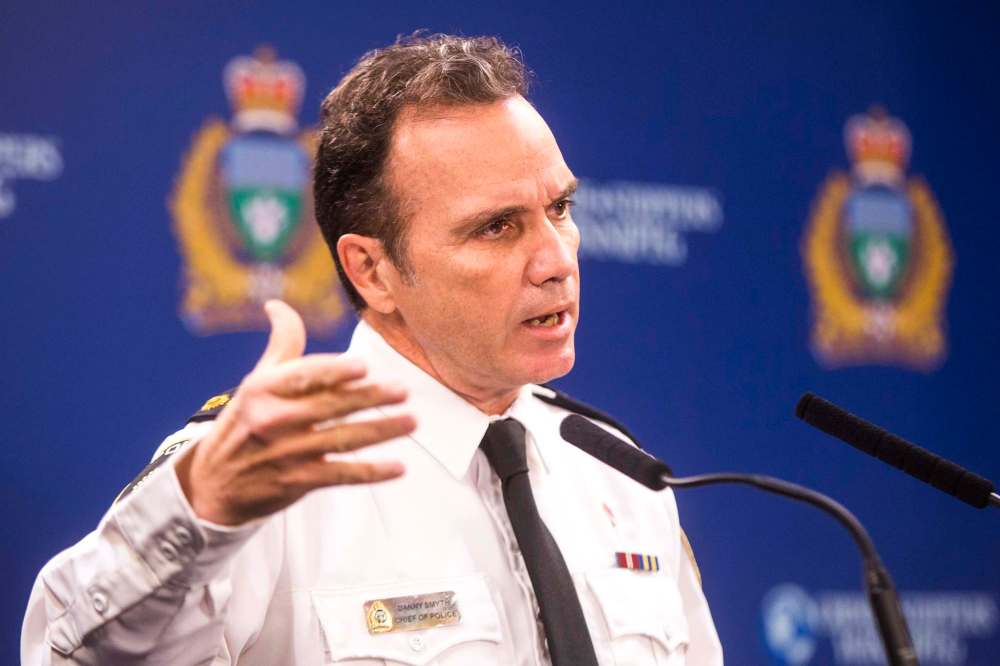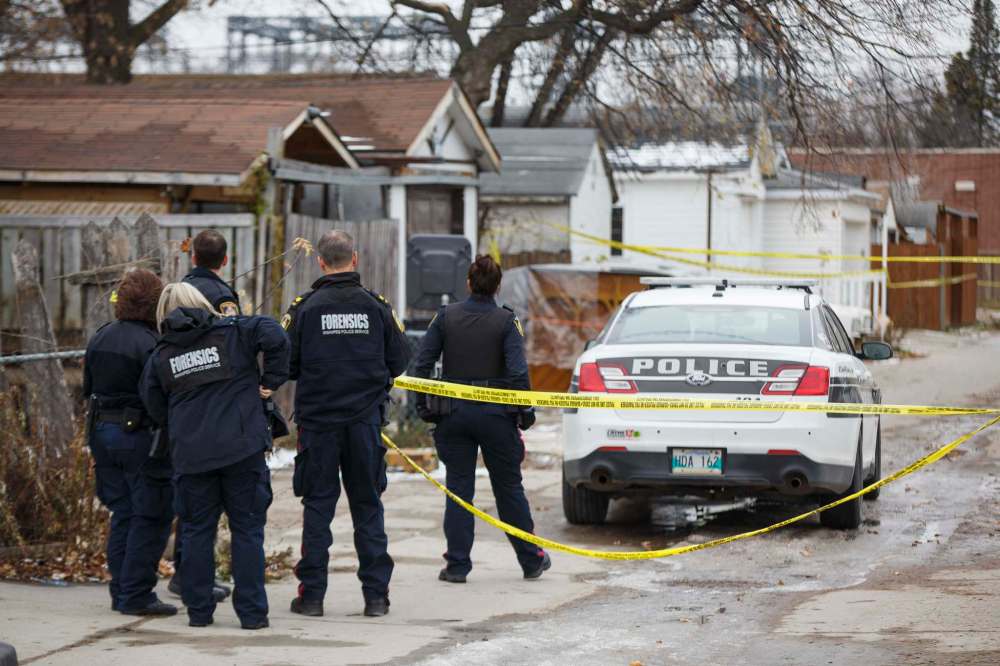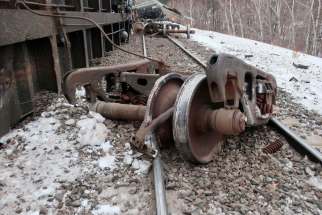City, police must find common ground on budget
Read this article for free:
or
Already have an account? Log in here »
To continue reading, please subscribe:
Monthly Digital Subscription
$0 for the first 4 weeks*
- Enjoy unlimited reading on winnipegfreepress.com
- Read the E-Edition, our digital replica newspaper
- Access News Break, our award-winning app
- Play interactive puzzles
*No charge for 4 weeks then price increases to the regular rate of $19.00 plus GST every four weeks. Offer available to new and qualified returning subscribers only. Cancel any time.
Monthly Digital Subscription
$4.75/week*
- Enjoy unlimited reading on winnipegfreepress.com
- Read the E-Edition, our digital replica newspaper
- Access News Break, our award-winning app
- Play interactive puzzles
*Billed as $19 plus GST every four weeks. Cancel any time.
To continue reading, please subscribe:
Add Free Press access to your Brandon Sun subscription for only an additional
$1 for the first 4 weeks*
*Your next subscription payment will increase by $1.00 and you will be charged $16.99 plus GST for four weeks. After four weeks, your payment will increase to $23.99 plus GST every four weeks.
Read unlimited articles for free today:
or
Already have an account? Log in here »
Hey there, time traveller!
This article was published 13/11/2019 (2223 days ago), so information in it may no longer be current.
If you really want to know what the space between the proverbial rock and a hard place really looks like, look no further than the current debate over the Winnipeg Police Service budget.
On the rock side of the equation: Chief Danny Smyth railing against a proposed two per cent cap on the annual police operating budget (the WPS requested an 2.5 per cent bump, or an additional $2.8 million).
Smyth claims without that $2.8 million, the department will have 34 fewer officers and 25 fewer cadets over the next four years. It would be a tragedy, the chief said, as the WPS struggles to deal with meth-fuelled crime.

In the role of the hard place: the Winnipeg Police Association, which has filed a grievance against the City of Winnipeg for attempting to unilaterally change the terms of the police pension plan. Council wants to remove overtime from the calculation of annual retirement benefits, a feature city officials claim could save more than $12 million in annual employer contributions.
In between those two formidable forces: city council and — by implication — city taxpayers.
Both want a high level of police service delivered by officers who feel valued by the city they strive to protect each day. Both also expect financial prudence when it comes to managing the civic budget.
The hard reality for taxpayers is if council gives in to the demands from both the WPS and WPA, there would be serious consequences for other civic services, along with the possibility of significant tax increases. Something has to give in a dispute where no one seems willing to compromise.
You could lay blame for the current crunch on a number of different factors.
A failure in the 1990s and into the 2000s to increase property taxes adequately and a dramatic reduction in the amount of money invested in street renewals and repairs is certainly part of the equation. Now, the city is spending so much money on its street infrastructure (both borrowed and cash to capital) there seems little room for anything else.
Along with the WPS, a two per cent budget cap has been imposed on the Winnipeg Fire Paramedic Service, Winnipeg Transit and city water and waste department. A 1.5 per cent annual cap is in effect for public works, 0.5 per cent for community services. Other departments have had budgets frozen.
There is also some blame to be had for previous local, provincial and federal governments that, over a period of some 20 years, lavished politically motivated increases on policing services during a period when crime rates were plummeting. The rush to put more “boots on the street” to combat reduced crime levels was a miscalculation taxpayers at all levels are continuing to pay.
For Winnipeg — a city with limited streams of revenue and an austerity-minded provincial government that has reduced funding over the past three years — there are no easy answers.

Part of the solution will involve reconfiguring police resources to meet increased demands for service, and on that front, the WPS has shown it is ahead of the curve.
With 40 homicides in the first 10-plus months this year, Smyth announced the temporary reassignment of 74 officers to bolster the homicide unit and increase the number of front-line officers responding to calls. This will require the closure of district station duty offices.
There is wisdom in his decision to make these changes on a temporary basis; crime, particularly homicide, tends to ebb and flow, and it would be premature to make permanent changes.
Does that mean the city should just give police more money?
Not without help from the other unmovable force in this equation: the WPA.
In the past, when there was a spike in demand for police services, both the WPS and its union were able to take the same general tack: ask the city, or other levels of government, for more money. Given the political popularity of pumping money into policing, more often than not, those demands were met.
That was then — and now there is a new, and appropriate, focus on controlling police costs. Urban communities across the country are trying to slow the growth of police budgets in a day and age when, with some exceptions, crime rates are not going up.
Although it is not the WPA’s responsibility to ensure the affordability of the police service, there is no doubt the city is hamstrung by a contract signed in 2017 that includes a WPS wage increase this year of 2.5 per cent.

That means salary costs are going up faster than the operations budget — a recipe for disaster.
Hovering over the question of affordability is Mayor Brian Bowman’s attempt to change the pension plan outside of normal contract negotiations. Bowman might cultivate some support from the WPA if he was willing to use more of the savings from the proposed pension changes to cover increasing costs of policing. (Right now, only $1.5 million of an estimated $12 million would be reinvested in policing.)
Even though the city, WPS and WPA all have slightly different goals, they are bound by a shared interest in providing the best police services possible.
That just might be enough to turn these combatants into collaborators.
dan.lett@freepress.mb.ca

Born and raised in and around Toronto, Dan Lett came to Winnipeg in 1986, less than a year out of journalism school with a lifelong dream to be a newspaper reporter.
Our newsroom depends on a growing audience of readers to power our journalism. If you are not a paid reader, please consider becoming a subscriber.
Our newsroom depends on its audience of readers to power our journalism. Thank you for your support.











